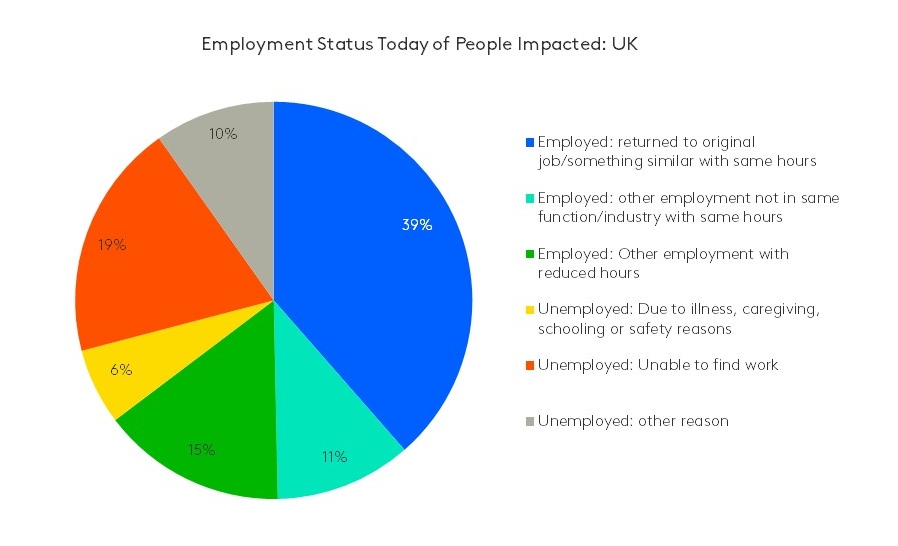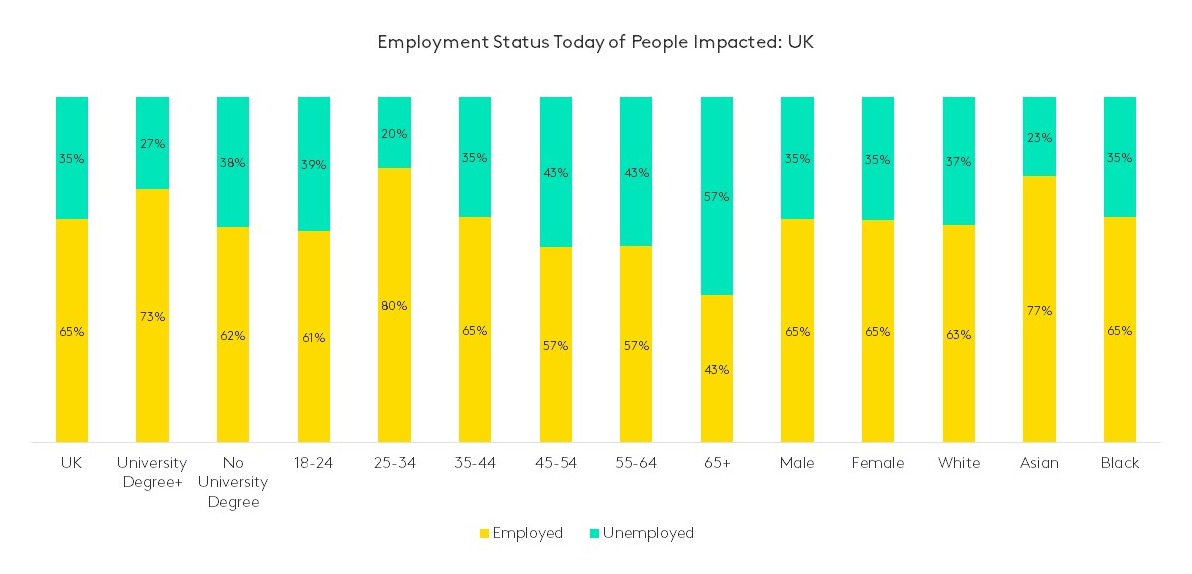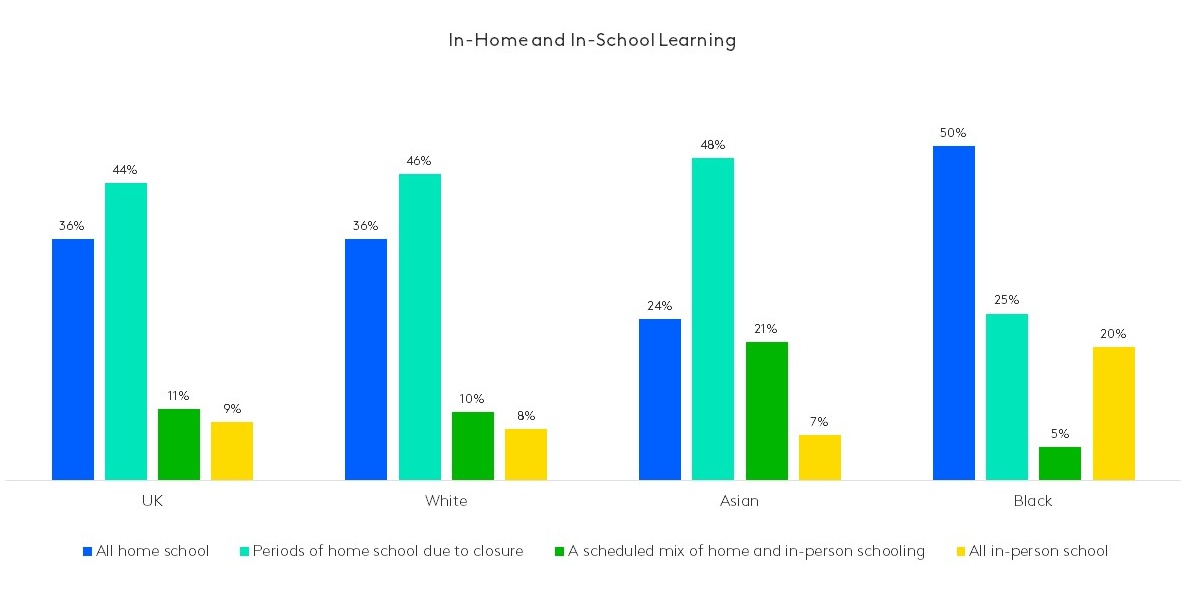The foundations of life as we know it, learning for our youth and work for adults, have been shaken by the COVID-19 global pandemic. In a recent study of Kantar's LifePoints panellists, we uncovered the reality of the state of employment and education across eight countries. Here we look at data from the UK.
Nationally, 30% of people in the UK lost income during the pandemic.
The majority of those impacted lost work due to layoffs, business closures or downsizes or experienced a temporary loss of hours or wage.
Of those who lost work, left work or experienced reduced wages during the pandemic, 39% have returned to their same job or something similar, but 35% remain unemployed. When looking at education specifically, 27% of those with a university degree remain unemployed compared to 38% of those without a degree.

15% of those impacted are back in work with reduced hours.
15% of UK respondents live with another adult contributing towards the household whose employment was also impacted by the pandemic.
Younger age groups were more impacted in their employment during the pandemic.
The findings show that 18-24-year-olds in the UK have the highest remaining unemployment with 39% of them still out work.
Men and women are back at work.
Whilst the loss of work was relatively even across men and women globally, 9% more men are now back in employment. In the UK, the same amount of men and women have returned to work.
1% of men and 2% of women left work to support the home-schooling of their children.

Lots of home schooling in the UK
Over 90% of parents in the UK reported their children have done at least some in-home/remote schooling this academic year, and 36% reported their child/children have not attended in-school classes at all.
For Black families, 50% report not having attended in-school classes compared to 36% white and 24% of Asian families.

Parental concerns on academic and social opportunities
Parents of children who have done some in-home schooling claim their biggest academic concern is their children falling back academically (36%). For parents whose children only have attended in-school classes, the majority (36%) are still concerned about the social impact of the pandemic.
Learn more
Find out more from this research on our global website, including the impact on ecommerce and vaccine opinions. Explore more country breakdowns and access the complete report.
Editors note
This study was conducted using Kantar's Proprietary LifePoints panel in January 2021, n=8102 in the US, UK, Germany, France, Italy, The Netherlands, India and Mainland China. Most data here is from the UK sample.
